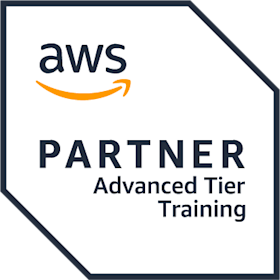Course subjects
Module 1: Introduction to Cloud Operations on AWS
What is Cloud Operations?
AWS Well-Architected Framework
AWS Well-Architected Tool
Module 2: Access Management
AWS Identity and Access Management (IAM)
Resources, accounts, and AWS Organisations
Module 3: System Discovery
Methods to interact with AWS services
Tools for automating resource discovery
Inventory with AWS Systems Manager and AWS Config
Hands-On Lab: Auditing AWS Resources with AWS Systems Manager and AWS Config
Module 4: Deploy and Update Resources
Cloud Operations in deployments
Tagging strategies
Deployment using Amazon Machine Images (AMIs)
Deployment using AWS Control Tower
Module 5: Automate Resource Deployment
Deployment using AWS CloudFormation
Deployment using AWS Service Catalog
Hands-On Lab: Infrastructure as Code
Module 6: Manage Resources
Module 7: Configure Highly Available Systems
Module 8: Automate Scaling
Scaling with AWS Auto Scaling
Scaling with Spot Instances
Managing licences with AWS License Manager
Module 9: Monitor and Maintain System Health
Monitoring and maintaining healthy workloads
Monitoring AWS infrastructure
Monitoring applications
Hands-On Lab: Monitor Applications and Infrastructure
Module 10: Data Security and System Auditing
Maintaining a strong identity and access foundation
Implementing detection mechanisms
Automating incident remediation
Module 11: Operate Secure and Resilient Networks
Module 12: Mountable Storage
Configuring Amazon Elastic Block Store (Amazon EBS)
Sizing Amazon EBS volumes for performance
Using Amazon EBS snapshots
Using Amazon Data Lifecycle Manager to manage your AWS resources
Creating backup and data recovery plans
Configuring shared file system storage
Hands-On Lab: Automating with AWS Backup for Archiving and Recovery
Module 13: Object Storage
Module 14: Cost Reporting, Alerts, and Optimisation
Gaining AWS cost awareness
Using control mechanisms for cost management
Optimising your AWS spend and usage
Hands-On Lab: Capstone lab for CloudOps
Please note: This is an emerging technology course. Course outline is subject to change as needed.


